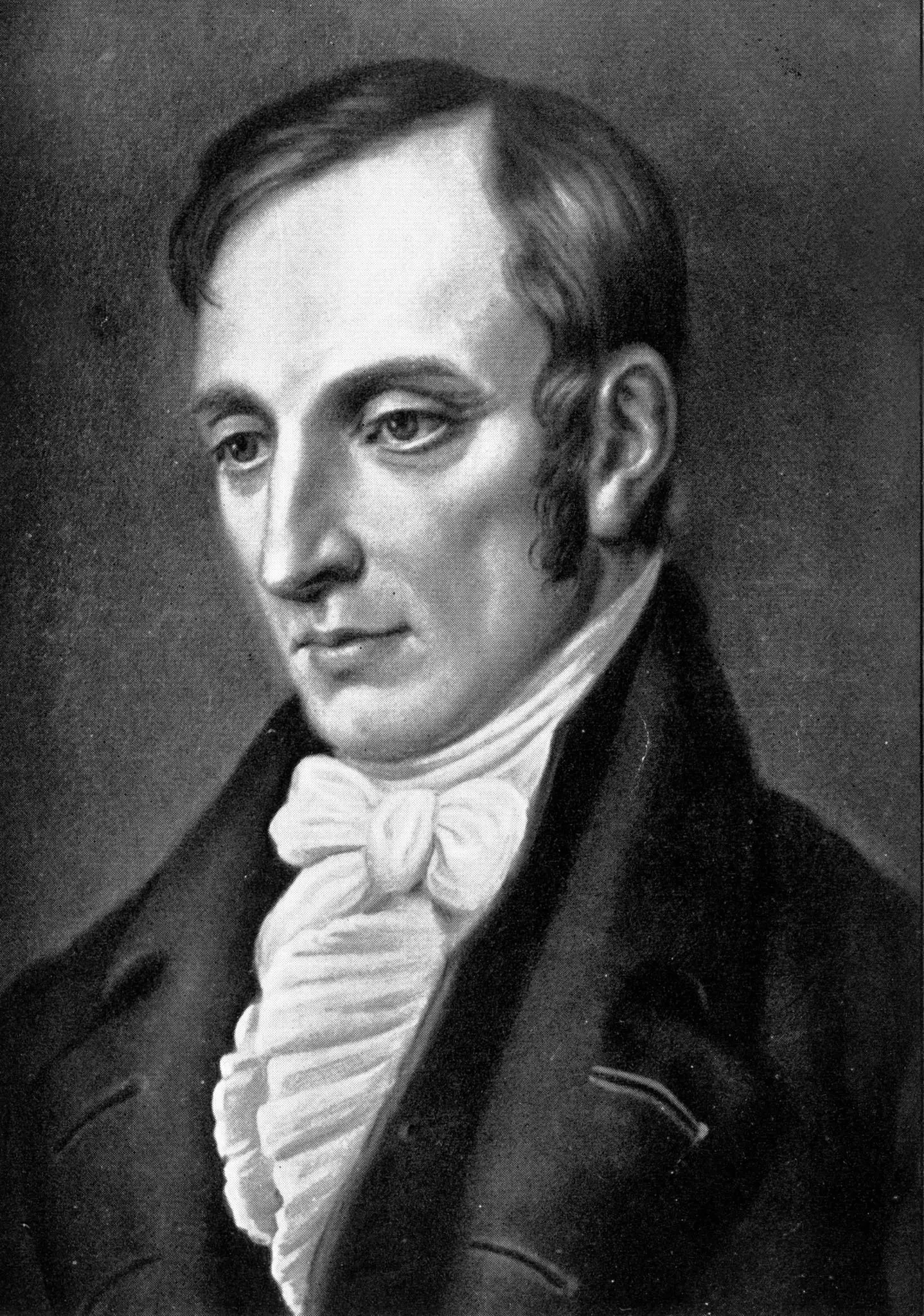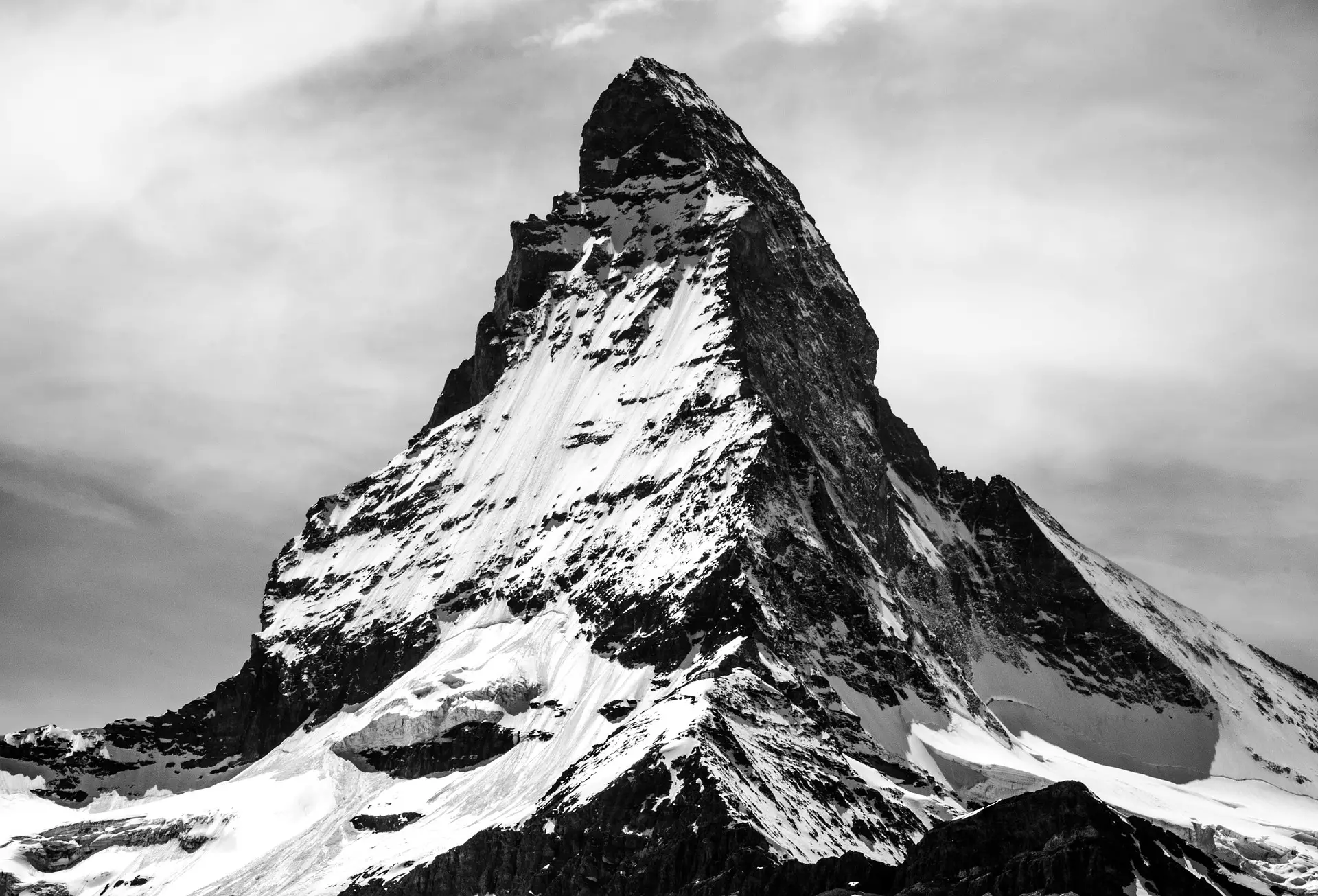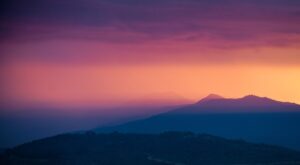
FULL POEM - SCROLL DOWN FOR LINE-BY-LINE ANALYSIS
She was an elfin Pinnace; lustily
I dipp’d my oars into the silent Lake,
And, as I rose upon the stroke, my Boat
Went heaving through the water, like a Swan;
When from behind that craggy Steep, till then
The bound of the horizon, a huge Cliff,
As if with voluntary power instinct,
Uprear’d its head. I struck, and struck again
And, growing still in stature, the huge Cliff
Rose up between me and the stars, and still,
With measur’d motion, like a living thing,
Strode after me. With trembling hands I turn’d,
And through the silent water stole my way
Back to the Cavern of the Willow tree.
There, in her mooring-place, I left my Bark,
And, through the meadows homeward went, with grave
And serious thoughts; and after I had seen
That spectacle, for many days, my brain
Work’d with a dim and undetermin’d sense
Of unknown modes of being; in my thoughts
There was a darkness, call it solitude,
Or blank desertion, no familiar shapes
Of hourly objects, images of trees,
Of sea or sky, no colours of green fields;
But huge and mighty Forms that do not live
Like living men mov’d slowly through my mind
By day and were the trouble of my dreams.

LINE-BY-LINE ANALYSIS
STANZA 1
One summer evening (led by her) I found
Wordsworth anecdotally sets the scene to a ‘summer evening’ – an image of warmth and often romance in poetry. This idea of romance is followed up by Wordsworth describing that he was ‘led by her’. This personifies nature as his lover, illustrating the strong relationship between them at the start of the poem.
A little boat tied to a willow tree
This line serves to expand the narrative and give a feeling of adventure to the poem whilst also being a metaphor for man’s reliance on nature to survive and thrive as the man-made boat is tied to ‘a willow tree’.
Within a rocky cove, its usual home.
The ‘rocky cove’ is a metaphor for the imperfect allure of nature, it is rustic and jagged but this imperfection adds to its charm and sense of realism.
Straight I unloosed her chain, and stepping in
The sense of adventure that the boat foreshadowed comes to fruition as the narrator unties it from the tree and steps in.
Pushed from the shore. It was an act of stealth
‘An act of stealth’ seems an unusual choice of phrase for Wordsworth. Normally we associate ‘stealth’ with secrecy, perhaps trespassing. Wordsworth portrays it as though mankind is trespassing on the peaceful, beauty of nature.
And troubled pleasure, nor without the voice
‘Troubled pleasure’ is an oxymoron. ` Maybe this description links to the idea of ‘stealth’ in the previous line. He feels ecstatic yet guilty about venturing onto the previously pristine waters of nature and disturbing them.
Of mountain-echoes did my boat move on;
The narrator is moving on ‘without the voice of mountain-echoes’ in his mind. The personification of the mountains paints a picture of the supernatural omnipresence of nature whilst also showing his lack of fear and doubt of their supernatural omnipotence as he is moving away from them.
Leaving behind her still, on either side,
Small circles glittering idly in the moon,
The way Wordsworth portrays the image of the moonlight and the water (two wonders of nature) creates a beautiful yet peaceful image of nature. At this moment, nature is being caring and tranquil with its power.
Until they melted all into one track
The image of the water melting is one of strangeness, yet oddly perfectly represents the ripples in the water coinciding. This conveys the ability of nature to be entirely natural and supernatural all at once.
Of sparkling light. But now, like one who rows,
The encampment between this and the previous line gives a flowing, uninterrupted to the spoken narrative. This mirrors the perfect flow of the water and nature as a whole, but also the progress of the narrator.
Proud of his skill, to reach a chosen point
With an unswerving line, I fixed my view
Upon the summit of a craggy ridge,
Wordsworth shifts the focus of the narrative from passively participating and respecting nature to challenging, perhaps working against, it as he fixates on reaching the summit of a ‘craggy ridge’.
The horizon’s utmost boundary; far above
Was nothing but the stars and the grey sky.
The ‘craggy ridge’ sounds sharp and uneven, hence, slightly hostile. This hostility contrasts the almost welcoming beautiful, infinite expanse that is the ‘stars and grey sky’.
She was an elfin pinnace; lustily
‘Pinnace’ is an archaic word for a small boat and ‘elfin’ describes this boat as small and delicate but also elf-like.
I dipped my oars into the silent lake,
And, as I rose upon the stroke, my boat
Went heaving through the water like a swan;
These 3 lines narrate the narrator rowing through the ‘silent lake’. The ‘silent lake’ again reminds us of the pristine nature of the lake, the only disturbances within it are from mankind. The simile ‘like a swan’ is graceful and relates his man-made disturbances as natural which creates harmony within the narrative.
When, from behind that craggy steep till then
The word ‘when’, albeit subtle, acts as a dramatic tone shift in the poem and flips the relationship between man and nature on its head.
The horizon’s bound, a huge peak, black and huge,
Suddenly nature turns on the narrator as it is metaphorically represented by the ‘huge peak, black and huge’ rising up against him. The repetition of ‘huge’ signifies its vastness but also the extent to which it dominates and intimidates the narrator as he seems to repeat it out of shock and fear. The ‘black’ colour of the ‘peak’ creates a dark, gothic, deathly image.
As if with voluntary power instinct,
Upreared its head. I struck and struck again,
Wordsworth describes the ‘peak’ (which is a metaphor for nature) as having a mind of its own and rearing its head. This emphasises nature’s unwillingness to cooperate with mankind and, as the narrator strikes it ‘again’, shows that mankind can’t do that much about it, leaving them in a vulnerable, isolated position.
And growing still in stature the grim shape
Towered up between me and the stars, and still,
These 2 lines encapsulate the vastness and power of nature. The imagery ‘towered up between me and the stars’ paints a picture of this dark, massive peak consuming the horizon and dwarfing the narrator.
For so it seemed, with purpose of its own
And measured motion like a living thing,
‘Measured motion’ is an interesting, alliterative description of nature. It describes that the aforementioned dominance and, in some ways, brutality of nature as being quite calm and composed.
Strode after me. With trembling oars I turned,
‘Trembling’ portrays the extent of the fear the narrator’s experiencing which further emphasises the power imbalance between mankind and nature and the latter’s dominance. ‘With trembling oars’ is an example of hypallage because it is the narrator’s hands that are ‘trembling’ not, as the poem describes, the oars themselves.
And through the silent water stole my way
The ‘silent water’ sounds still and peaceful. This description of nature completely juxtaposes the tumult of the ‘huge peak’. The message is that nature, despite its brutality, can offer solitude in times of fear and hardship.
Back to the covert of the willow tree;
The narrator has fled the danger and returned to the ‘willow tree’ – a place where the grandeur of nature is comforting and protective, not oppressive. The return of the narrator gives the poem a cyclical structure that could be said to mirror the cyclical nature of nature with the seasons.
One summer evening (led by her) I found
Wordsworth anecdotally sets the scene to a ‘summer evening’ – an image of warmth and often romance in poetry. This idea of romance is followed up by Wordsworth describing that he was ‘led by her’. This personifies nature as his lover, illustrating the strong relationship between them at the start of the poem.
A little boat tied to a willow tree
This line serves to expand the narrative and give a feeling of adventure to the poem whilst also being a metaphor for man’s reliance on nature to survive and thrive as the man-made boat is tied to ‘a willow tree’.
Within a rocky cove, its usual home.
The ‘rocky cove’ is a metaphor for the imperfect allure of nature, it is rustic and jagged but this imperfection adds to its charm and sense of realism.
Straight I unloosed her chain, and stepping in
The sense of adventure that the boat foreshadowed comes to fruition as the narrator unties it from the tree and steps in.
Pushed from the shore. It was an act of stealth
‘An act of stealth’ seems an unusual choice of phrase for Wordsworth. Normally we associate ‘stealth’ with secrecy, perhaps trespassing. Wordsworth portrays it as though mankind is trespassing on the peaceful, beauty of nature.
And troubled pleasure, nor without the voice
‘Troubled pleasure’ is an oxymoron. ` Maybe this description links to the idea of ‘stealth’ in the previous line. He feels ecstatic yet guilty about venturing onto the previously pristine waters of nature and disturbing them.
Of mountain-echoes did my boat move on;
The narrator is moving on ‘without the voice of mountain-echoes’ in his mind. The personification of the mountains paints a picture of the supernatural omnipresence of nature whilst also showing his lack of fear and doubt of their supernatural omnipotence as he is moving away from them.
Leaving behind her still, on either side,
Small circles glittering idly in the moon,
The way Wordsworth portrays the image of the moonlight and the water (two wonders of nature) creates a beautiful yet peaceful image of nature. At this moment, nature is being caring and tranquil with its power.
Until they melted all into one track
The image of the water melting is one of strangeness, yet oddly perfectly represents the ripples in the water coinciding. This conveys the ability of nature to be entirely natural and supernatural all at once.
Of sparkling light. But now, like one who rows,
The encampment between this and the previous line gives a flowing, uninterrupted to the spoken narrative. This mirrors the perfect flow of the water and nature as a whole, but also the progress of the narrator.
Proud of his skill, to reach a chosen point
With an unswerving line, I fixed my view
Upon the summit of a craggy ridge,
Wordsworth shifts the focus of the narrative from passively participating and respecting nature to challenging, perhaps working against, it as he fixates on reaching the summit of a ‘craggy ridge’.
The horizon’s utmost boundary; far above
Was nothing but the stars and the grey sky.
The ‘craggy ridge’ sounds sharp and uneven, hence, slightly hostile. This hostility contrasts the almost welcoming beautiful, infinite expanse that is the ‘stars and grey sky’.
She was an elfin pinnace; lustily
‘Pinnace’ is an archaic word for a small boat and ‘elfin’ describes this boat as small and delicate but also elf-like.
I dipped my oars into the silent lake,
And, as I rose upon the stroke, my boat
Went heaving through the water like a swan;
These 3 lines narrate the narrator rowing through the ‘silent lake’. The ‘silent lake’ again reminds us of the pristine nature of the lake, the only disturbances within it are from mankind. The simile ‘like a swan’ is graceful and relates his man-made disturbances as natural which creates harmony within the narrative.
When, from behind that craggy steep till then
The word ‘when’, albeit subtle, acts as a dramatic tone shift in the poem and flips the relationship between man and nature on its head.
The horizon’s bound, a huge peak, black and huge,
Suddenly nature turns on the narrator as it is metaphorically represented by the ‘huge peak, black and huge’ rising up against him. The repetition of ‘huge’ signifies its vastness but also the extent to which it dominates and intimidates the narrator as he seems to repeat it out of shock and fear. The ‘black’ colour of the ‘peak’ creates a dark, gothic, deathly image.
As if with voluntary power instinct,
Upreared its head. I struck and struck again,
Wordsworth describes the ‘peak’ (which is a metaphor for nature) as having a mind of its own and rearing its head. This emphasises nature’s unwillingness to cooperate with mankind and, as the narrator strikes it ‘again’, shows that mankind can’t do that much about it, leaving them in a vulnerable, isolated position.
And growing still in stature the grim shape
Towered up between me and the stars, and still,
These 2 lines encapsulate the vastness and power of nature. The imagery ‘towered up between me and the stars’ paints a picture of this dark, massive peak consuming the horizon and dwarfing the narrator.
For so it seemed, with purpose of its own
And measured motion like a living thing,
‘Measured motion’ is an interesting, alliterative description of nature. It describes that the aforementioned dominance and, in some ways, brutality of nature as being quite calm and composed.
Strode after me. With trembling oars I turned,
‘Trembling’ portrays the extent of the fear the narrator’s experiencing which further emphasises the power imbalance between mankind and nature and the latter’s dominance. ‘With trembling oars’ is an example of hypallage because it is the narrator’s hands that are ‘trembling’ not, as the poem describes, the oars themselves.
And through the silent water stole my way
The ‘silent water’ sounds still and peaceful. This description of nature completely juxtaposes the tumult of the ‘huge peak’. The message is that nature, despite its brutality, can offer solitude in times of fear and hardship.
Back to the covert of the willow tree;
The narrator has fled the danger and returned to the ‘willow tree’ – a place where the grandeur of nature is comforting and protective, not oppressive. The return of the narrator gives the poem a cyclical structure that could be said to mirror the cyclical nature of nature with the seasons.


